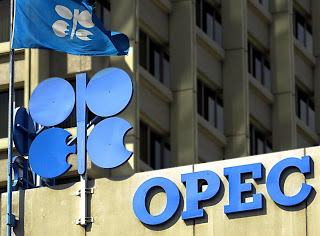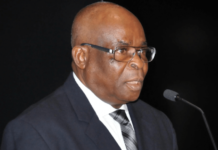OPEC and non-OPEC oil producers look poised to
agree at a meeting on Thursday to extend output cuts until the end of
2018, four OPEC sources said as the group seeks to clear a global glut
of crude and avoid another price crash.
agree at a meeting on Thursday to extend output cuts until the end of
2018, four OPEC sources said as the group seeks to clear a global glut
of crude and avoid another price crash.

Some last-minute debate
was still possible on the language of an expected statement, with
non-OPEC Russia pushing for a clear message on how to exit the cuts so
the market is prevented from overheating by flipping into a deficit too
soon.
was still possible on the language of an expected statement, with
non-OPEC Russia pushing for a clear message on how to exit the cuts so
the market is prevented from overheating by flipping into a deficit too
soon.
The
producers’ current deal, under which they are cutting supply by about
1.8 million barrels per day (bpd) in an effort to boost oil prices,
expires in March.
producers’ current deal, under which they are cutting supply by about
1.8 million barrels per day (bpd) in an effort to boost oil prices,
expires in March.
“They will agree on the nine
months,” an OPEC delegate said, adding that a meeting of the
Organization of the Petroleum Exporting Countries, due to start around
0900 GMT, was expected to be smooth.
months,” an OPEC delegate said, adding that a meeting of the
Organization of the Petroleum Exporting Countries, due to start around
0900 GMT, was expected to be smooth.
A second source said: “No surprises … all are for nine months.”
Two
other sources made similar remarks. The OPEC meeting will be followed
by a gathering of OPEC and non-OPEC producers led by Russia at around
1400 GMT.
other sources made similar remarks. The OPEC meeting will be followed
by a gathering of OPEC and non-OPEC producers led by Russia at around
1400 GMT.
The 14-member OPEC and Russia have
signalled that they may review any extension of the deal when they meet
again in June if the market overheats.
signalled that they may review any extension of the deal when they meet
again in June if the market overheats.
With oil
prices rising above $60 per barrel, Russia has expressed concerns that
such an extension could prompt a spike in crude production in the United
States, which is not participating in the deal.
prices rising above $60 per barrel, Russia has expressed concerns that
such an extension could prompt a spike in crude production in the United
States, which is not participating in the deal.
Russia
needs much lower oil prices to balance its budget than OPEC’s leader
Saudi Arabia, which is preparing a stock market listing for national
energy champion Aramco next year and would hence benefit from pricier
crude.
needs much lower oil prices to balance its budget than OPEC’s leader
Saudi Arabia, which is preparing a stock market listing for national
energy champion Aramco next year and would hence benefit from pricier
crude.
“Prices will be well supported in
December with a large global stock draw. The market could surprise to
the upside with even $70 per barrel for Brent not out of the question if
there is an unexpected interruption in supply,” said Gary Ross, a
veteran OPEC watcher and founder of Pira consultancy.
December with a large global stock draw. The market could surprise to
the upside with even $70 per barrel for Brent not out of the question if
there is an unexpected interruption in supply,” said Gary Ross, a
veteran OPEC watcher and founder of Pira consultancy.
Three
sources familiar with OPEC talks said the group may also debate capping
Nigerian and Libyan output at 1.8 million bpd and 1 million bpd
respectively, having exempted the two countries so far due to unrest and
lower-than-normal production.
sources familiar with OPEC talks said the group may also debate capping
Nigerian and Libyan output at 1.8 million bpd and 1 million bpd
respectively, having exempted the two countries so far due to unrest and
lower-than-normal production.
The production
cuts have been in place since the start of 2017 and helped halve an
excess of global oil stocks although those remain at 140 million barrels
above the five-year average, according to OPEC.
cuts have been in place since the start of 2017 and helped halve an
excess of global oil stocks although those remain at 140 million barrels
above the five-year average, according to OPEC.
Russia
has signalled it wants to understand better how producers will exit
from the cuts as it needs to provide guidance to its private and state
energy companies.
has signalled it wants to understand better how producers will exit
from the cuts as it needs to provide guidance to its private and state
energy companies.
“It is important … to work out a strategy
which we will follow from April 2018,” Russian Energy Minister Alexander
Novak said on Wednesday. (Reuters)
which we will follow from April 2018,” Russian Energy Minister Alexander
Novak said on Wednesday. (Reuters)











